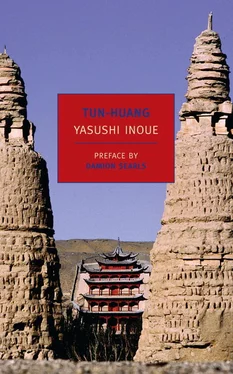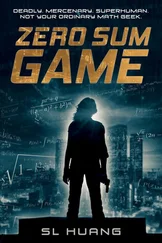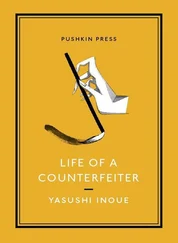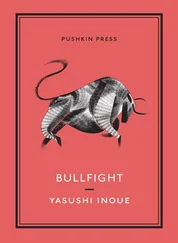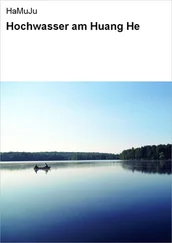At that moment it occurred to Hsing-te how incongruous it was to find himself a follower of Li Yüan-hao. It also seemed strange to Hsing-te that he would willingly die in battle for this prince, and that he was about to set out for battle. And he could not understand why he was not particularly disturbed by the prospect.
After the inspection had ended and the men had returned to the city, Hsing-te was called in by Chu Wang-li, commander of three hundred men. This leader, a man past forty, had performed numerous acts of heroism, and his valor was unmatched, even among the dauntless vanguard youths.
“I hear that your name is written on your uniform.” Chu Wang-li looked critically at Hsing-te’s clothes. Then staring at a spot, he asked, “Is this your name?” He pointed to the letters: Chao Hsing-te.
“That’s right,” Hsing-te answered.
“If I could read and write, I would be more of a success. No matter how much of a hero I may be, my lack of education holds me back. From now on I’ll take special care of you, so you can come and read the orders from headquarters whenever I need you,” he said.
“If it’s just orders, I’ll be glad to read them for you any time.” As he replied Hsing-te calculated that it wouldn’t be a disadvantage to know this superior.
“Well, then, I have to read one now.” Wang-li pointed to a piece of cloth he held in his hand.
Hsing-te stepped closer to Wang-li to get a better look. The writing was not Chinese. It was clearly Hsi-hsia, which was similar to Chinese but definitely not Chinese. No matter how hard Hsing-te tried, he could not read it. When Hsing-te informed Wang-li that he could not read it because it was not Chinese, Wang-li looked scornfully at him and said, “You mean to say you can only read Chinese? All right then, be off now!” He raised his voice angrily.
Hsing-te did not obey. “This is Hsi-hsia writing. If you introduce me to someone who knows it, I’ll be able to read it in two or three days. I’ve wanted to learn Hsi-hsia for some time. I’d like to go to Hsing-ch’ing. If you let me, I think I can soon be of help to you.”
“Hmm.” Wang-li’s eyes glittered as he stared at Hsing-te. “All right,” he said. “If you survive the next battle, I’ll ask my commander to let you learn Hsi-hsia. I’m a man of my word. If we both survive I’ll definitely keep my promise to you. Remember that!” said Wang-li.
Then Hsing-te asked his superior why someone who could not read would notice the writing on Hsing-te’s uniform.
“It wasn’t I. Li Yüan-hao noticed it.” Wang-li would say no more.
After this incident, Hsing-te was called in by Wang-li from time to time and given special duties. The commander was interested in him because he could read and write. He also seemed to respect Hsing-te.
In mid-May, Li Yüan-hao personally led the whole army in an invasion of Kan-chou, the Uighur garrison. Hsing-te was called in again by Wang-li the night before their unit was scheduled to leave as part of the vanguard.
“I’ll let you join my unit. My troops have never lost a battle yet. About eighty percent die in battle, but the survivors always win the battle. As a special favor to you, I’ll let you join me,” said Wang-li. Hsing-te felt neither too pleased nor displeased at the news.
Wang-li continued, “I’m thinking of building a monument for our unit if we win the next battle. I’ll let you write the epitaph.”
“Where do you plan to build it?”
“Who can tell? I don’t know yet — perhaps in the middle of the desert or in some village in Kan-chou. If we win but lose most of the men in battle, we’ll build a monument on that spot.”
“What if we should die?”
“Who? You mean me?” Wang-li’s characteristically sharp eyes glittered. “Even I may die. Build a monument even if I die.”
“And what if I die?”
“It would complicate things. Try your best to survive. But you might be killed at that. Everyone who has talked with me on the night before a battle has been killed. Yes, you may die.”
Hsing-te’s new commander spoke in this vein. Hsing-te did not like what Wang-li had to say, but he was not particularly frightened by the thought of dying. When he asked whether the writing on the monument should be in Chinese or Hsi-hsia, Wang-li roared, “Stupid! Naturally, Chinese must be used on the monument. We are not Hsi-hsia. The Hsi-hsia language is just good for reading orders, that’s all.”
Rumor had it that Wang-li had formerly been a Sung soldier at Liang-chou and had been taken prisoner when the city fell into Hsi-hsia hands. Since then he had been assigned to the vanguard of the Hsi-hsia army. Naturally, this was just gossip and no one had asked him about it. Wang-li was terribly ashamed of his past, and it was said that should anyone mention the subject, he would get into a terrible rage.
Hsing-te liked this middle-aged hero.
It took a whole day — from dawn of one day until dawn of the next — for the Hsi-hsia army to set out from Liang-chou on its way to invade Kan-chou. The total force of two hundred thousand men were divided into more than ten armies, which left through the stone city gate at one- or two-hour intervals, so a continual stream throughout the day and night headed west from the fertile plains which lay to the city’s north. Each army was preceded by a cavalry force, after which came a long line of infantry, followed by hundreds of camels laden with food supplies.
Hsing-te, a member of the vanguard, was in the first unit to leave. Of the several units in the vanguard, more than half the troops in each were Chinese soldiers; the others were Asha, Tangut, and various other peoples. Soon after the vanguard had passed through the rich plains, the terrain alternated between sandy, gravelly areas and marshy swamp-lands, and from the afternoon of the day of their departure the advance was extremely difficult.
The distance from Liang-chou to Kan-chou was one hundred and eighty miles. Between these two garrisons many rivers from the Ch’i-lien mountains flowed into the parched areas and formed oases. The first night the regiment camped on the banks of the Chiang-pa River; the second, on the banks of the Tan-shan River; and the third, on the rocky shores of a nameless river close by the mountains. All that night the wind howled ceaselessly. On the fourth morning the troops arrived on the banks of the Shui-mo River, and the following afternoon they entered a ravine enclosed by mountains to the north and south.
When they had passed through the ravine on the sixth day, the men stopped to rest for a day. From this point on, the way to Kan-chou was almost all on level terrain. The men fell into battle formation and went on. It was a march across a desert, with not a single tree in sight. On the seventh and eighth nights the troops camped along the banks of a murky, yellow river which cut deeply into the yellow earth of the plateaus. Guards were posted from the seventh day.
On the ninth day the scouts who had been sent out two days before returned. They reported that the Uighur army was advancing toward the Hsi-hsia. The battle troops got rid of their gear and kept only their weapons with them.
On the morning of the tenth day the Hsi-hsia troops saw groups of what appeared to be black specks moving toward them in a wide band along the slopes of a rolling hill. As soon as the enemy was sighted, the whole army was ordered to attack. The first five units of the Hsi-hsia vanguard spread their columns into bands twenty horses wide. They were all cavalry. The infantry and supply units were far behind bringing up the rear.
For some time the two armies advanced on each other over the gently undulating dunes of the desert. Hsing-te’s unit was assigned to a position about one-third of the way behind the front of the formation. Wang-li’s unit of about three hundred men had triangular yellow standards at its head and rear.
Читать дальше
